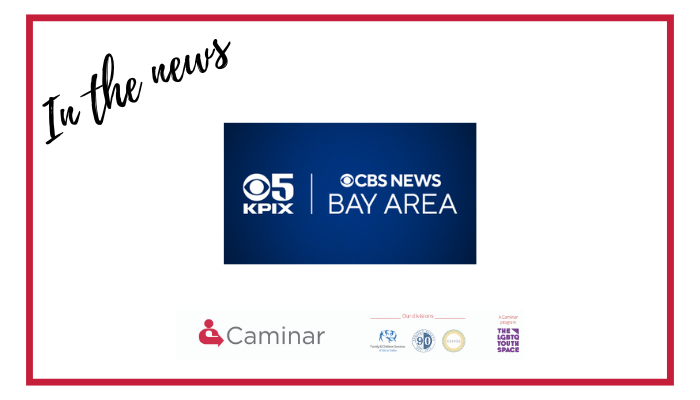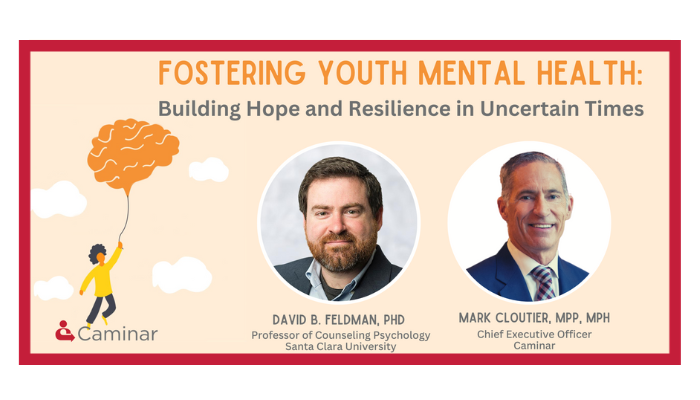In order to provide the right support, we first need to understand what indicators are causing this crisis. A large proponent is social media, which is limiting time - time to interact with other children and adults, and reducing the time to sleep. The other two big factors compounding the issue are climate change and gun violence. A global study showed that 8 out of 10 children worry that climate change is threatening people, and the planet. Firearms are also the leading cause of death for children and young adults between 0 to 24 years of age. These statistics, coupled with the normal stressors of adolescence - likeability, acceptance, identity issues, etc. - are contributing to poor mental health. So how do we, as parents, do what we can to mitigate their exposure to these issues by having on-going, effective and informed communication with them? To start, recognizing distress they may have from these issues is the beginning of being able to create hope in them.
Prioritize Connection
We can start by recognizing what adolescents value. Younger generations look to us for honesty and authenticity, and they hunger for deep connections to feel seen for what they think. Putting ourselves in their shoes and understanding where they’re coming from and what they’re feeling, will help us build connection and instill the hope they’re looking for.
Connecting with adolescents and understanding them on an emotional level by offering them a safe space to open up and letting them know it’s normal to have big feelings about societal issues, i.e., climate change or gun violence, will begin the process of restoring our youth’s mental health. As Elizabeth Allured, PsyD, a clinical psychologist and educator at Suffolk Institute, advises, “you don’t have to be a therapist to be a good listener, but you do have to listen quite well.” Instead of talking to our children, listen to them. Hear what they have to say, as this will not only validate their feelings, but allow you to form a deeper connection with them as well.
Don’t Jump to A Solution
Oftentimes, our society will see a problem and want to find a solution right away. Instead of trying to solve the issue, it’s important to recognize the issue at hand and how it’s impacting our youth, on an emotional level. “Young people do not consider incremental change as a solution-
making aspect anymore,” said mental health advocate and public health major at the University of Nevada Las Vegas, Faria Tavacoli. Adolescents find that by expressing their emotions about the problem first, they’re able to clear their minds and then tackle the solution.
Be Honest and Authentic
In discussing one’s emotional toll and feelings that surmount when these issues arise, it’s important to be honest with our youth. Allow them to trust you. If a child asks you how you feel about climate change and you’re worried about it too, be honest with them. Let them know that when you do experience moments of hopelessness, you pause and let the feelings fully in. It is important to communicate that so they feel safe talking to you about how difficult their feelings are for them. If it feels appropriate, you may consider exploring what solutions might work –including them in brainstorming solutions empowers them. It may also be a good time to remember the progress that has been made as a way of instilling hope. If you say “everything will be alright,” but your face shows worry, the chances of that child trusting or opening up to you again are likely slim to none. Simply, we need to be better role models by being vulnerable and sharing our emotions too.
Caution Against Misinformation
Another challenge is the ever-expanding web of misinformation that challenges our youth’s ability to see clear facts or fables, leading to doubt and mistrust. More so, as technology like artificial intelligence (AI) advances, it’s critical to give our youth the resources and knowledge to identify an AI-generated source versus a human one. Susan Clayton, PhD, Whitmore-Williams Professor of Psychology at the College of Wooster in Ohio, suggests that staying on top of these advancements is vital, but also “teaching children how, and when, to be able to trust what they hear is an important skill too.” Reputable news sites are helpful resources to distinguish between fact and fiction, as well as validation from an adult who may have more knowledge on the topic or situation.
Understand that Resilience Takes Time
Regardless of the stressor, like the isolation brought about by the pandemic, or the polarizing political environment that is creating civil strife, every child will have a unique perspective and connection to these events. It’s also important to recognize and accept that resilience is not a constant. The saying, “what doesn’t kill you, makes you stronger,” doesn’t apply here, as even the most resilient people have hard days. Nonetheless, “resilience can be built with practice, it’s like a muscle,” says Anne E. Brodsky, PhD, Professor and Chair of Psychology at the University of Maryland, Baltimore County (UMBC). Staying resilient amidst these events will look different for everyone, which is why community and social support is so important.
Providing our youth with resources in general through physical reading materials, access to support groups, and skills training, is important to improving their mental health. Whether they’re worried about the pandemic or a recent mass shooting, providing them with the right material to learn about these topics is critical to making them feel heard, and allows them to process their emotions. Increasing our engagement within our own communities will build our youth’s resiliency in their mental health. Seeing that so many people are involved or care about a certain issue, will make them feel less alone and justify that what they are worried about really does matter.
It’s daunting to see how often these issues are occurring and the impact it’s having on our younger generations. The curtain’s pulled back, unveiling a lot of work that needs to be done to provide the hope our youth needs. Truly, it’s up to us to teach the skills necessary for resilience. If hope is the intention, resilience is the action that will make it a reality. So, let’s get to it.


























